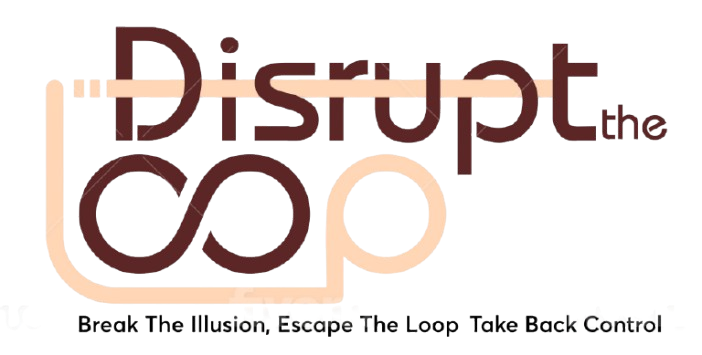Introduction
Identity has long been perceived as a fixed and stable construct, an unchanging core that defines who we are. However, emerging research and philosophical discourse suggest that identity is anything but static. Rather, it is a dynamic and evolving process, constantly shaped by internal needs and external influences.
By synthesizing insights from neuroscience, philosophy, and psychology, this article explores how identity is fluid—how it shifts and adapts in response to experience, social interaction, and personal growth. Examining the interplay between “Who am I?” and “What am I becoming?” reveals that identity is a continuous, unfolding narrative rather than a rigid state of being.
The Neuroplastic Self: Scientific Perspectives on Identity
Neuroplasticity and the Malleable Brain
Advances in neuroscience have revolutionized our understanding of the brain’s adaptability. Neuroplasticity—the brain’s ability to reorganize itself by forming new neural connections—provides a biological basis for identity fluidity. Studies show that experiences, learning, and environmental changes can physically alter brain structure, supporting the notion that the self is not fixed but ever-changing.
Research by neuroscientist Michael Merzenich demonstrates that the brain’s sensory maps can reorganize in response to shifts in sensory input. This adaptability extends beyond sensory processing to cognition and self-perception, reinforcing the idea that identity is an evolving construct.
Memory and the Reconstructive Nature of Identity
Memory, often considered a cornerstone of personal identity, is itself fluid and malleable. Neuroscientist Daniela Schiller’s research on memory reconsolidation suggests that every time we recall an event, we subtly alter its representation in the brain. This means that our autobiographical memories—and by extension, our sense of self—are continually reshaped by new experiences and perspectives.
Evolutionary Psychology and Adaptive Identity
From an evolutionary standpoint, a fluid identity serves adaptive purposes. Evolutionary psychologists argue that personality traits and behaviors are shaped by environmental pressures. This adaptability allows individuals to navigate changing social landscapes and meet evolving survival needs, reinforcing the idea that identity is a dynamic process of becoming rather than a fixed state.
Philosophical Perspectives on the Fluid Self
Existentialism and the Project of Becoming
Existentialist philosophers have long grappled with the concept of identity as a continuous process. Jean-Paul Sartre famously stated, “Existence precedes essence,” meaning that individuals are not born with a predetermined identity but instead create themselves through choices and actions.
Simone de Beauvoir expanded on this idea, particularly in relation to gender identity. Her assertion that “One is not born, but rather becomes, a woman” highlights the socially constructed and fluid nature of identity categories.
The Heraclitean Flux and Identity
The ancient Greek philosopher Heraclitus provides a compelling metaphor for identity fluidity with his observation that “No man ever steps in the same river twice.” This philosophy of perpetual change aligns with modern understandings of identity as a dynamic process, constantly reshaped by our experiences and interactions.
Narrative Identity and the Storied Self
Contemporary philosophers have developed the concept of “narrative identity,” viewing the self as an ongoing story we tell about ourselves. Philosopher Paul Ricoeur argued that identity is formed through the integration of diverse experiences into a coherent life narrative. This perspective emphasizes the evolving nature of identity, where our sense of self is continuously rewritten in light of new experiences and aspirations.
Psychological Insights into Identity Fluidity
Self-Determination Theory and Identity Development
Self-Determination Theory (SDT), developed by psychologists Edward Deci and Richard Ryan, provides a framework for understanding identity as a dynamic process driven by fundamental psychological needs. According to SDT, our sense of self evolves as we pursue goals that fulfill our needs for autonomy, competence, and relatedness.
Research shows that individuals who feel their basic psychological needs are met tend to have a more integrated and flexible sense of identity, adapting more readily to new circumstances and challenges.
The Dialogical Self: Multiple Voices Within
Hubert Hermans’ theory of the Dialogical Self conceptualizes identity as a multiplicity of dynamic “I-positions” that interact in a dialogical fashion. This model views the self not as a unitary entity but as a “society of mind,” with different aspects of identity emerging in different contexts.
Studies applying the Dialogical Self Theory demonstrate how individuals navigate multiple, sometimes conflicting, identities across various life domains, highlighting the fluid and context-dependent nature of selfhood.
Erikson’s Psychosocial Stages and Lifelong Identity Formation
Erik Erikson’s influential theory of psychosocial development frames identity formation as a lifelong process. While adolescence is a critical period for identity development, Erikson’s model recognizes that identity continues to evolve throughout adulthood, shaped by life experiences and social roles.
Longitudinal studies have supported Erikson’s view, showing that identity development is a lifelong process, with significant changes occurring well into adulthood.
Conclusion
The integration of scientific, philosophical, and psychological perspectives reveals identity as a fluid, evolving construct rather than a fixed entity. Neuroplasticity demonstrates the brain’s capacity for change, philosophical insights highlight the ongoing process of becoming, and psychological theories emphasize the role of needs, narratives, and social contexts in shaping our sense of self.
This multidisciplinary exploration suggests that “Who am I?” and “What am I becoming?” are not separate questions but intertwined aspects of a continuous journey. Our identities are shaped by a complex interplay of biological adaptability, personal choices, and social influences, constantly evolving in response to new experiences and changing circumstances.
Embracing the fluid nature of identity opens up possibilities for personal growth and adaptation. It challenges us to view ourselves not as fixed entities but as works in progress, capable of change and self-renewal. As we navigate the complexities of modern life, understanding the dynamic nature of identity can empower us to actively shape our becoming, fostering resilience and personal development in the face of life’s inevitable changes.

